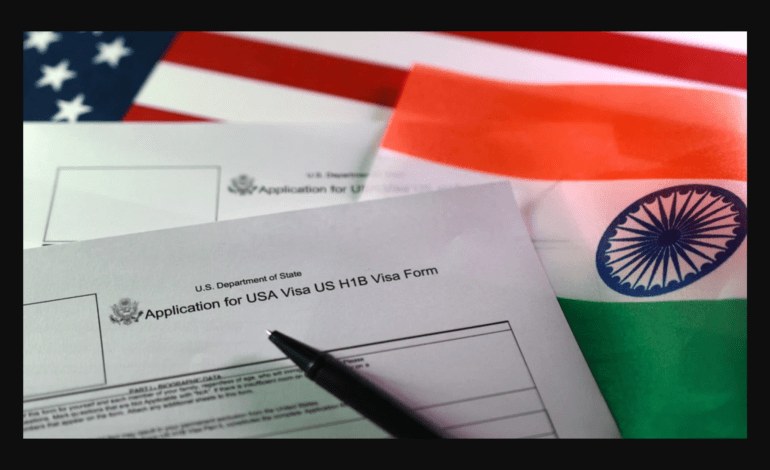
H-1B visa fee increase leaves thousands of Indians questioning their American dream
Thousands of Indian professionals are facing shattered dreams as the Trump administration’s hike in H-1B visa fees upends long-planned US career paths. The new policy, increasing visa fees from $2,000 to $100,000, has dramatically raised costs for companies sponsoring skilled workers. For many Indian IT employees, the financial burden makes US opportunities less viable, leaving aspirants reconsidering their future abroad.
Meghna Gupta*, a 29-year-old IT professional in Hyderabad, had mapped her career around a move to the US. “The American Dream now feels like a cruel joke,” she said, reflecting the frustration of thousands of Indian tech workers whose aspirations have been disrupted.
The H-1B program has traditionally allowed Indian IT firms to send talent to the US, with over 70% of visas in 2024 going to Indian nationals. However, the new fee structure is expected to curb this trend, forcing US companies to prioritize domestic hiring and limit H-1B sponsorship to niche or hard-to-fill roles.
Analysts warn that the policy could shift large-scale operations offshore, increasing reliance on Indian and other overseas IT hubs while reserving US postings for critical positions. Ajay Srivastava, founder of the Global Trade Research Initiative (GTRI), explained, “The $100,000 fee makes onsite deployment prohibitively expensive, so Indian IT firms will double down on offshore delivery.”
The policy comes amid broader US-India tensions, including trade tariffs and geopolitical friction. While existing H-1B visas remain unaffected, the abrupt change has created panic among international students and young professionals in STEM fields.
Experts note the disruption could also benefit India by reducing the brain drain, encouraging some skilled professionals to return home. Still, challenges remain: salaries for US-trained returnees exceed local benchmarks, and the domestic ecosystem lags behind Silicon Valley in innovation speed.
For many, the options are limited. Countries like Canada, Australia, and New Zealand are emerging as alternatives, while India’s tech sector braces for an influx of highly skilled professionals seeking local opportunities.